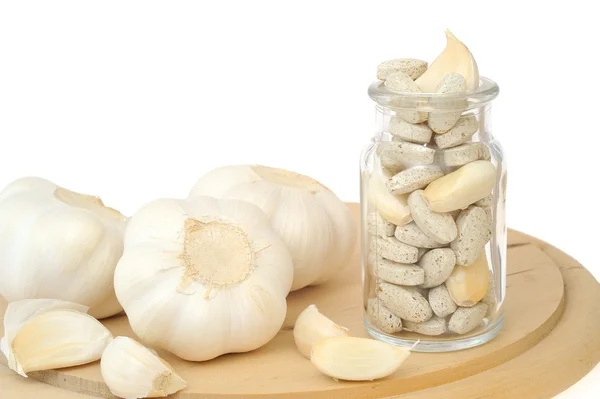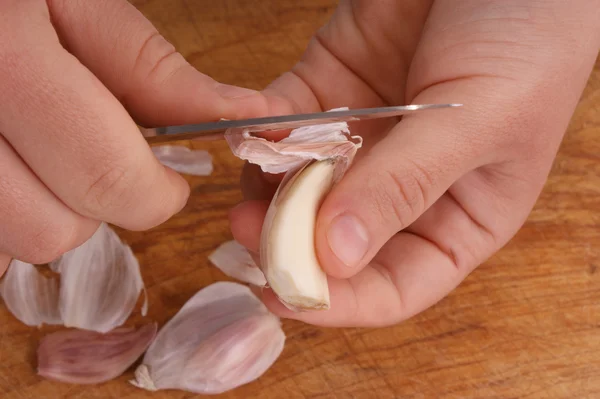Garlic has been touted for its numerous health benefits, but can it really increase breast milk supply in nursing mothers? Let’s take a closer look at the science behind this claim.
Garlic, scientifically known as Allium sativum, is a member of the onion family and has been cultivated and used for thousands of years. It is native to Central Asia and has found its way into cuisines all over the world. Known for its distinct flavor and aroma, garlic adds depth and complexity to countless dishes.
This humble bulb packs quite a nutritional punch as well. per 100 grams of garlic contains;
- Calories: 111
- Fat: 0.5 grams
- Carbohydrates: 27.2 grams
- Fiber: 2.3 grams
- Protein: 6.3 grams
- Vitamins:
- Vitamin C: 16.3 milligrams
- Vitamin B6: 1.2 milligrams
- Manganese: 1.9 milligrams
- Selenium: 14.9 micrograms
- Minerals:
- Calcium: 20 milligrams
- Iron: 1.2 milligrams
- Magnesium: 21 milligrams
- Phosphorus: 88 milligrams
- Potassium: 405 milligrams
Garlic is also a good source of other nutrients, such as vitamin A, vitamin E, and copper.
When it comes to breastfeeding mothers, garlic’s potential impact on breast milk supply is worth exploring further.
Garlic for Nursing Mothers: Does garlic Increase Breast Milk Supply?

There is limited scientific evidence to support the idea that garlic directly increases breast milk production.
However, anecdotal reports from many breastfeeding mothers suggest that consuming garlic may have a positive effect on their milk supply.
One theory is that the compounds found in garlic, such as allicin and sulfur-containing compounds, could stimulate mammary glands and promote lactation.
Additionally, “mothers who consumed garlic increased their babies’ desire for milk and the babies nursed longer”, according to Prescription for Nutritional Healing 5th Edition.
Garlic is also known to have antimicrobial properties, which could be beneficial for both mother and baby during breastfeeding.
It’s important to note that each woman’s body responds differently to various foods and supplements. While some women may notice an increase in milk supply after consuming garlic, others may not experience any changes.
RELATED: 12 Amazing Foods That Increases A Woman’s Breast Milk Fast
Other Benefits of Garlic for Breastfeeding Mothers
- It contains compounds that have antimicrobial properties, which can help prevent infections in the mother’s breasts. This is particularly important during the early stages of breastfeeding when mastitis (inflammation of the breast tissue) can occur.
- Garlic is known to improve blood circulation and increase the production of lactation-promoting hormones like prolactin. This enhanced blood flow can result in better nutrient delivery to the mammary glands, ultimately boosting milk supply.
- Garlic might enhance infants’ feeding behavior due to its distinct flavor. As babies latch onto their mother’s breasts more frequently and effectively, it can lead to increased milk removal and subsequently higher milk production.
Are There Any Side Effects of Taking Garlic Supplements?

Side effects of taking garlic supplements – While garlic is generally considered safe for consumption, some nursing mothers may experience certain side effects when taking garlic supplements. These side effects can vary from person to person and depend on factors such as dosage and individual sensitivity.
One common side effect of consuming excessive amounts of garlic is gastrointestinal discomfort. This can manifest as bloating, gas, or an upset stomach. If you notice these symptoms after taking a garlic supplement, it may be wise to reduce your dosage or discontinue use temporarily.
In rare cases, some individuals may also develop allergic reactions to garlic. Symptoms of a garlic allergy can include skin rashes, itching, swelling of the face or throat, difficulty breathing, or even anaphylaxis in severe cases. If you suspect that you are experiencing an allergic reaction to garlic supplements, seek medical attention immediately.
It’s worth noting that while consuming moderate amounts of cooked or raw garlic during breastfeeding is generally safe and unlikely to cause significant side effects in most individuals unless they have specific allergies or sensitivities. However, if you’re considering adding concentrated forms like supplements into your routine while nursing it’s always best to consult with your healthcare provider beforehand just to ensure it won’t interfere with any existing health conditions or medications.
Remember that everyone’s body reacts differently to substances and what works for one person may not work the same way for another. It’s important to pay attention to how your body responds when introducing new foods or supplements into your diet while breastfeeding.
How to take Garlic Supplements

Incorporating fresh garlic into your meals and recipes is good. Another option is to take garlic in supplement forms, such as capsules or tablets. These are widely available at health food stores and online retailers. It’s important to follow the recommended dosage instructions on the packaging and consult with your healthcare provider before starting any new supplement.
If you prefer a more natural approach, you can make your own garlic-infused oil by steeping crushed cloves in olive oil for several days. This oil can then be used for cooking or massaging onto the breasts.
Some nursing mothers also find relief from consuming raw garlic cloves or drinking garlic milk. To make garlic milk, simmer crushed cloves in milk until fragrant, strain out the solids, and enjoy warm or chilled.
How to Make Garlic Milk

To make garlic milk, start by peeling and crushing several cloves of fresh garlic. Then, heat a cup of milk in a saucepan until it reaches a simmer. Add the crushed garlic to the warm milk and let it steep for about 10 minutes. Afterward, strain out the garlic pieces and discard them.
The resulting infused milk can be consumed as is or used as a base for other recipes like smoothies or soups. Some women find that adding honey or cinnamon helps improve the taste if they find it too strong on its own.
In conclusion: while consuming moderate amounts of garlic is generally considered safe for breastfeeding mothers, some infants may experience sensitivity towards its flavor and odor through breast milk. It is crucial to monitor the behavior and comfort level of the baby after maternal intake of garlic. Consulting with a lactation consultant or healthcare provider can help provide individualized advice on managing any potential adverse effects on breastfed babies while still enjoying the benefits of incorporating garlic into the maternal diet.
Don’t miss: Breast Milk for Skin Whitening: Does it Work?










